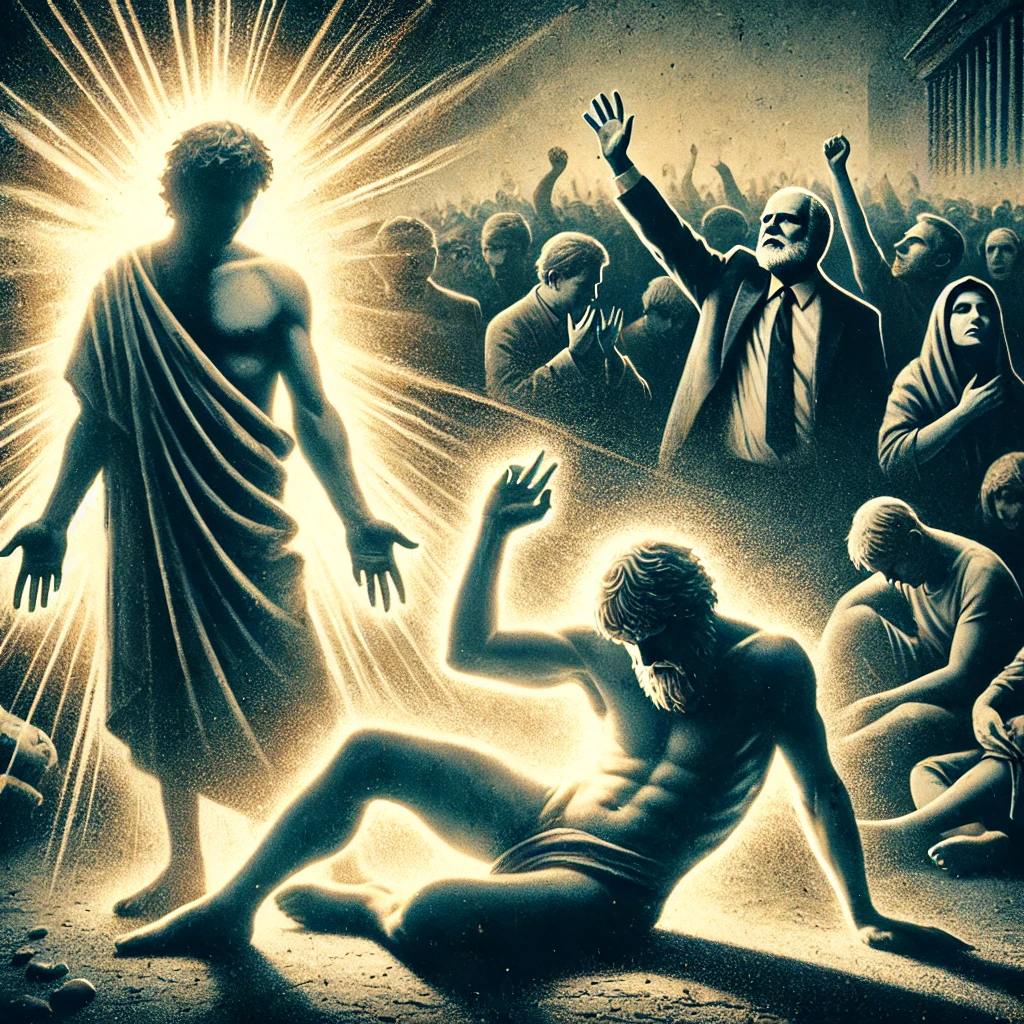Let’s clear something up.
I’ve written before about how people build entire personalities around movie quotes and song lyrics, using them like philosophical blueprints for life. Sometimes, it’s harmless fun—who doesn’t love dropping a perfectly timed, “Say hello to my little friend!” or a “You can’t handle the truth!” in conversation? But other times, this kind of selective cultural memory rewrites the real meaning of something, stripping it of its original context and turning it into something it was never meant to be.
And today, we’re talking about one of the biggest offenders.
We’re going way back, past the 90s, past the golden age of hip-hop, past even the days when people wore FUBU and thought they’d made it. We’re going all the way back to Genesis—yes, the Bible—where we find the origin of the phrase, Am I my brother’s keeper?
And trust me, when Cain said those words, he wasn’t making some sacred vow of loyalty. He was lying his ass off.
The Original Sin of Brotherhood
So let’s set the scene. Cain and Abel, the first brothers ever recorded in human history, both offer sacrifices to God. Abel—humble, devoted, a real overachiever—gives his best. Cain? Not so much. God, being a tough grader, rejects Cain’s offering and gives Abel all the gold stars.
Cain, instead of taking the L and stepping up his game, decides the real problem isn’t his effort—it’s Abel’s existence.
So he murders his own brother in cold blood.
Enter God, stage left.
“Where is your brother?”
Now, pause. Right here, Cain has options. He could fess up. He could at least try to explain himself. He could show some damn remorse.
But nah.
Instead, he hits God with the ultimate gaslight move:
“Am I my brother’s keeper?”
Translation: How the hell should I know? It’s not my job to keep track of him.
Except…it was.
That line wasn’t an oath of brotherhood—it was a weak-ass excuse from a guilty man. Cain was trying to shrug off responsibility, pretending that Abel’s fate wasn’t on him. And guess what? God wasn’t buying it.
But fast forward a few thousand years, and somehow, this phrase gets a cultural remix.
New Jack City and the Rebranding of Brotherhood
Jump ahead to 1991. A little film called New Jack City drops, starring Wesley Snipes as Nino Brown—the ultimate gangster anti-hero. If you haven’t seen it, imagine if Scarface wore a mink coat, ran a drug empire out of a luxury apartment complex, and had no loyalty to anyone but himself.
But there’s one scene that sticks with people the most.
The Cash Money Brothers, a drug-dealing crew, stand together and recite what they think is a vow of loyalty:
“Am I my brother’s keeper?”
“Yes, I am.”
It became iconic. Powerful. A call to ride-or-die loyalty—a pledge that, no matter what, you stand by your people.
But there’s just one problem.
That’s not what the phrase meant. Not in Genesis. Not in reality.
And this misinterpretation? It’s still hurting us today.
How MAGA Twisted Brotherhood Into an Excuse
Enter MAGA America, where loyalty is twisted into something dangerous.
The modern conservative movement, especially its most extreme elements, loves to throw around words like patriotism, brotherhood, and unity—but only when it benefits them.
They say they stand by their own, but what they really mean is:
They refuse to hold their own accountable.
And that’s where the real meaning of Am I my brother’s keeper? comes back into play.
See, in the real world, brotherhood isn’t just about standing together—it’s about taking responsibility for each other’s actions.
And that’s something MAGA refuses to do.
- You can’t chant “Blue Lives Matter” and then excuse January 6th.
- You can’t claim to be about “family values” while ignoring blatant corruption and scandals within your ranks.
- You can’t pretend white supremacists are just “a few bad apples” when they’re marching alongside you at rallies.
But that’s exactly what they do.
Instead of owning the violence, the bigotry, and the insurrectionist rhetoric, they shrug it off. They act just like Cain.
“Am I my brother’s keeper?”
They act like they don’t know these people. They claim, “Oh, that’s not real conservatism.” They pretend the problem isn’t systemic. They refuse to acknowledge that the monsters they created are their own responsibility.
The One Cross, One Choice Parallel
In Christian theology, Jesus’ sacrifice is often referred to as One Cross, One Choice—the ultimate act of responsibility. He didn’t dodge blame, didn’t pass the buck, didn’t ask, “Am I my brother’s keeper?” expecting to get off scot-free. Instead, he owned the burden—even when it wasn’t his to bear.
Contrast that with today’s so-called “Christian nationalists” who wave crosses while preaching division. They hide behind grace but extend none to those they despise. They chant Am I my brother’s keeper?—but what they really mean is Not if it’s inconvenient.
But here’s the truth: if Christ could take responsibility for the world’s sins, the absolute bare minimum we should expect is for you to own up to the people in your own damn movement.
Because when the reckoning comes, you won’t get to shrug and ask, “How the hell should I know?”
We’ll all know.
And so will history.

